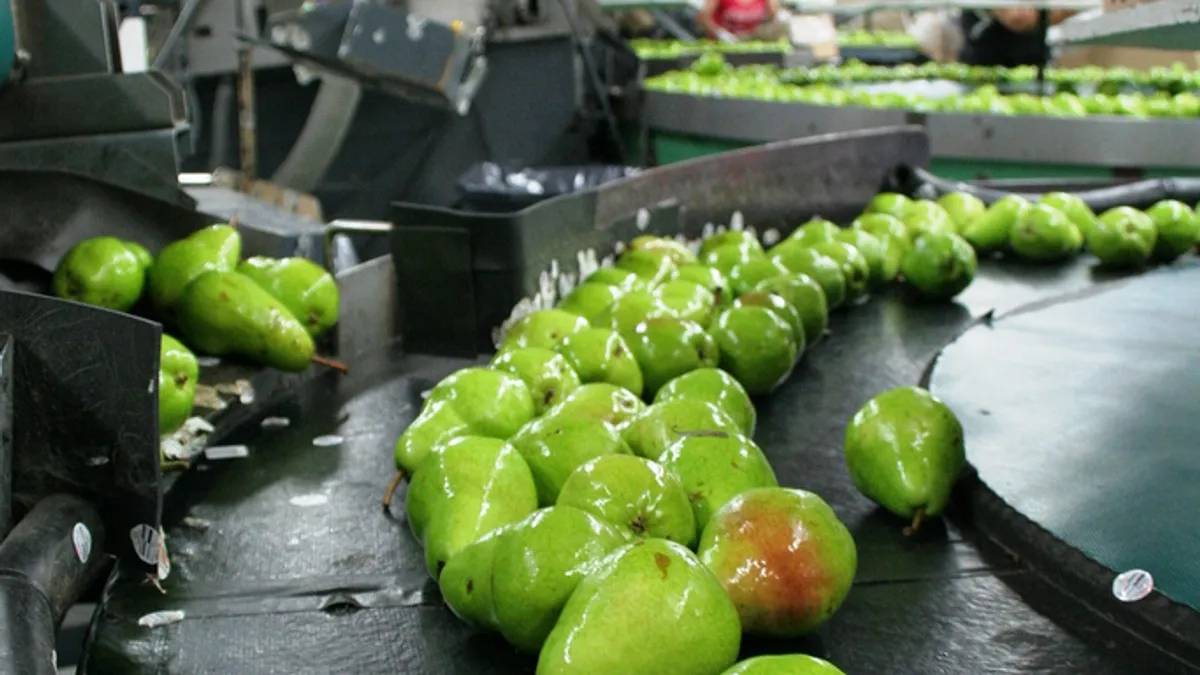Dive Brief:
-
Wal-Mart is taking steps to change food labels and present less-than-perfect produce in order to encourage customers to buy and consume healthy, (if imperfect), food.
-
The retailer is selling damaged-looking, but still good, apples and potatoes, according to Wal-Mart U.S.’s SVP Global Food Sourcing, Produce and Floral, Shawn Baldwin.
-
Baldwin announced that outwardly damaged apples labeled “I’m Perfect” are being packaged in five-pound bags in 300 Florida Wal-Mart stores and sold at a discount, while Fortune reports that misshapen potatoes deemed “Spuglies” are being sold at a discount in 400 Texas stores.
Dive Insight:
Wal-Mart is already also the country’s and the world’s largest grocer, with nationwide grocery sales of $167 billion last year. Now it's making more or less steady moves to protect and boost that position, including this effort to sell less-than-perfect-looking food.
And for good reason: U.S. consumers each year toss $29 billion worth of edible food, contributing to an annual global food waste problem amounting to $750 billion.
Being able to sell food that would otherwise get bypassed by consumers or never even make it onto shelves could save the company millions. But the effort requires careful attention to labels and some education of the consumer.
The efforts in the U.S. follow a campaign last year to sell “quirky” or “wonky” produce in its U.K. Asda grocery stores.
“This type of produce still tastes great and is beautiful on the inside; it just isn’t 100% perfect on the outside,” according to a company blog post by Ian Harrison, Asda Produce Technical Director. “By selling ‘wonky’ fruits and vegetables at a discounted price, we can help reduce food waste, while supporting farmers and offering customers even better value for their money. (For those who aren’t used to British speak, wonky means a little bit misshapen.)”
The retailer is also working to change up labels on packaged food that are less discouraging to sells, replacing “best by”, “use by” and “sell by” with the more gentle “Best if used by.”
That effort follows a 2013 report from the National Resources Defense Council and the Harvard Food Law and Policy Clinic detailing how such labels lead to food waste. Wal-Mart VP of Food Safety Frank Yiannas said the company has taken that to heart in its effort to stem waste.
These moves, along with its food-focused executive shakeup last year, reveal how important grocery has become to the retailer. Wal-Mart is dealing with perceptions that its food quality doesn’t compete adequately with other grocery stores, with cuts to the food-stamp program, and increasing food supply costs. And grocery in general has notoriously thin margins for any purveyor.
The retail giant’s focus on fresh food is a major part of the turnaround effort detailed by its U.S. CEO, Greg Foran. In June, Foran told shareholders that the company had doubled sales of local produce in the U.S. over the last six years, is “focused on winning in fresh,” and is building direct relationships with grocery suppliers.












